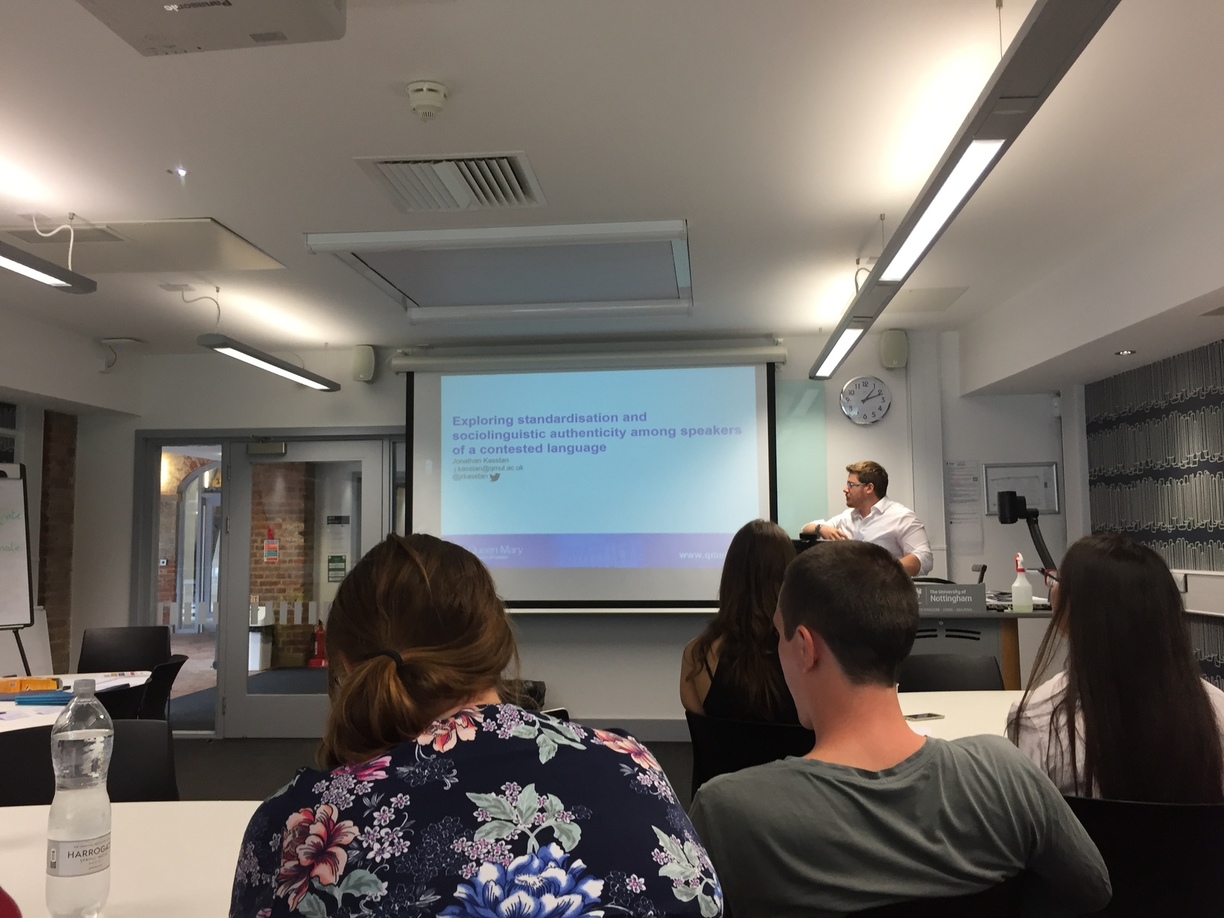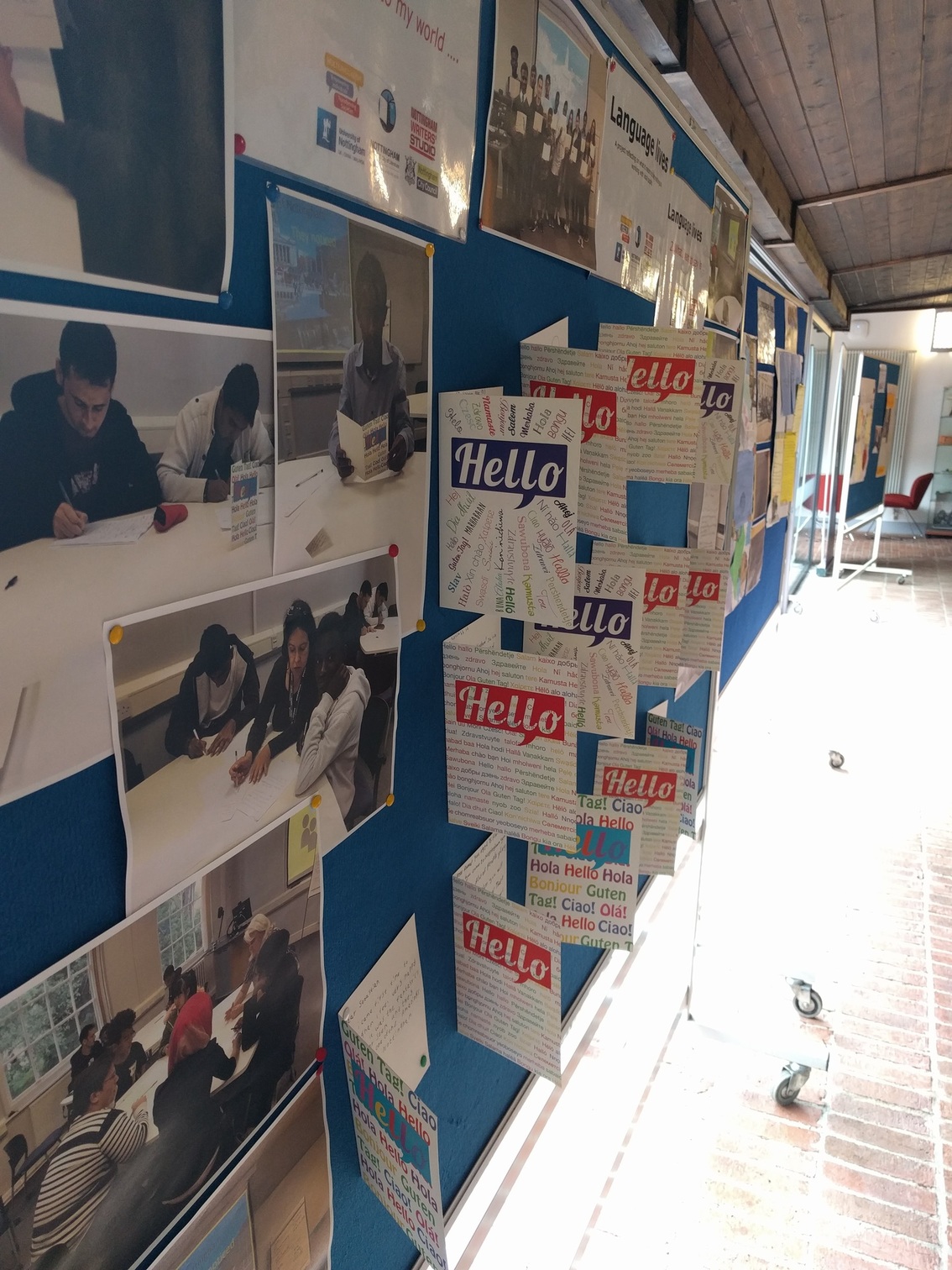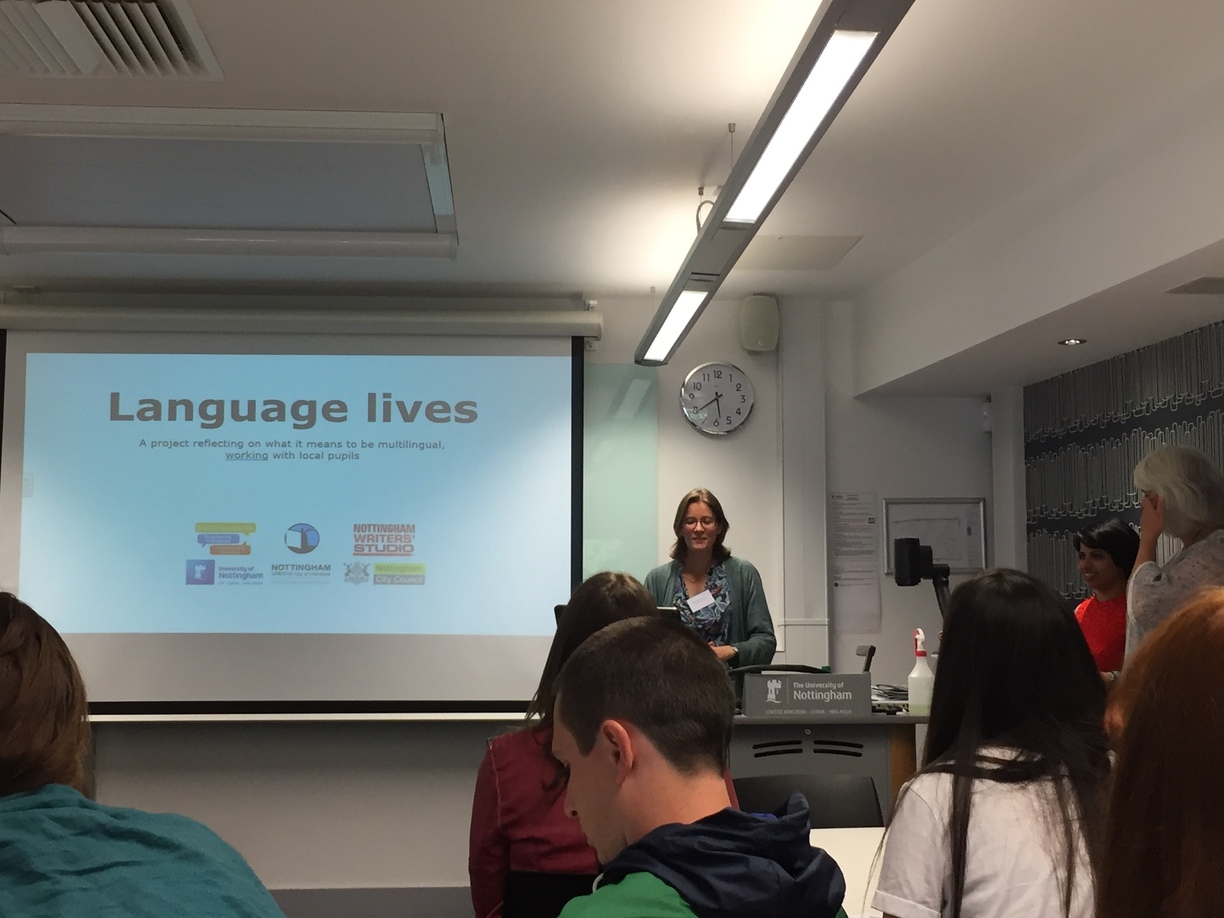On 6th and 7th July, Strand 2 of the MEITS project played host to a workshop organised by strand lead Nicola McLelland at the University of Nottingham. The workshop, entitled 'One rule for home, one rule for school? European experiences of 'good' language, 'bad language', and (the) standard language ideology in multilingual communities past and present', brought together researchers working in diverse multilingual contexts across Europe in which questions of language standardisation and language ideologies are of central importance.

The first session concentrated on minoritised languages and language in educational settings, with questions of variation, authenticity and authority coming to the fore in papers on Francoprovençal, Irish, German and Chinese as used in a Birmingham complementary school.
A second session focused on diasporic Russian in Ireland, multilingualism and standardisation in Ukraine, and language ideologies and practices in a Ukrainian complementary school in the UK. These papers complemented those of the morning session in examining the socio-political circumstances in which standards arise and change, and the societal motives which may bring about changes in language ideologies.
This was followed by an open discussion of language practices in Ukrainian speakers' relation to the standard and to the other languages they speak, from the perspective of a Ukrainian language teacher in a Nottingham complementary school. The first day came to a close with a presentation of the outputs from a series of creative writing workshops run by strand 2 among multilingual groups of local schoolchildren, including both English-speaking language learners and speakers of community languages.

The second day included papers covering speakers' self-assessment of their proficiencies in different languages, non-standard usage as a site of resistance in German youth speech and the status of standard German and German dialect in Italian South Tyrol. The Swiss context was examined in relation to language policy and ideologies around Rumantsch. The question of how to represent variation in dubbed renderings of Hollywood films was tackled in the contexts of Catalan and Spanish. The use of community languages in an intercultural centre is Bologna was the focus of another paper, while literary-cultural and cognitive approaches to multilingualism were presented in papers on Italian migration literature and verbal fluency in Basque and Catalan respectively. The final paper considered the idea of a global Spanish and how it might involve both empowerment and control for multilingual migrants in London.
The workshop succeeded in showcasing a variety of theoretical and methodological approaches to standard languages and standard language ideologies, raising questions of the sociopolitical roles of standards.

Two podcasts were also recorded during the workshop:
1. What’s correct Ukrainian in the UK?
Nottingham PhD student Katie Harrison interviews community Ukrainian teacher Lina Maksymuk about the challenges of teaching Ukrainian in the UK, in a community where not everyone agrees what correct Ukrainian is.
2. What’s good and bad about the language(s) we use - and who even cares about correctness anyway?
Nicola McLelland (Nottingham) leads a discussion with Jing Huang (Reading), Jonathan Kasstan (Queen Mary University of London) and Noel Ó Murchada (Trinity College Dublin) about who decides what’s right or wrong in how we use our language(s), who it matters to, and what people do to attempt to control what we say and how.






